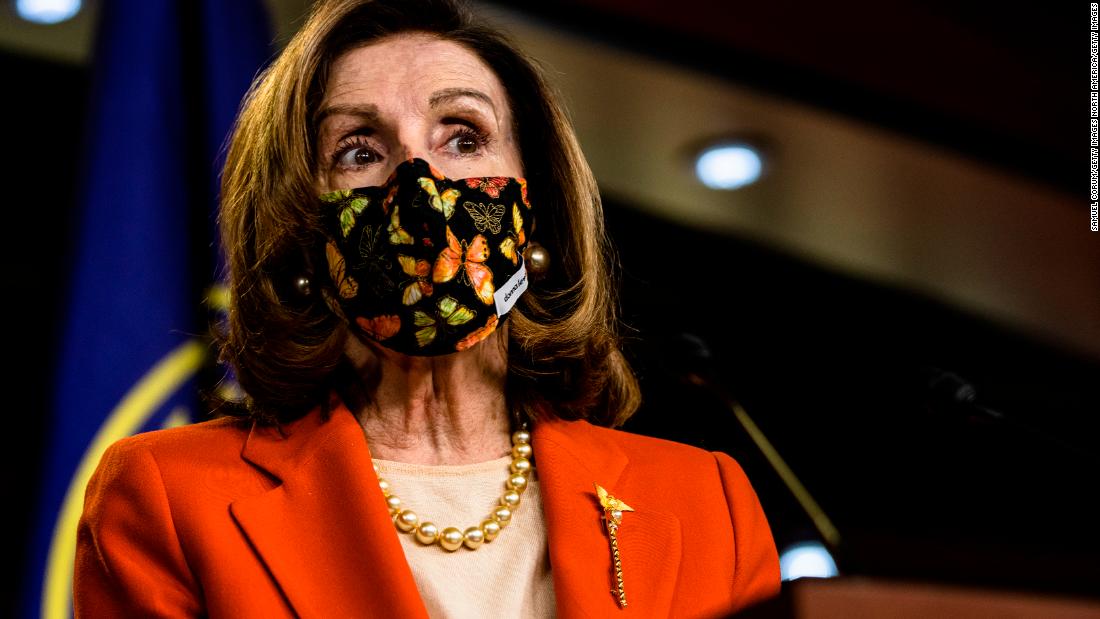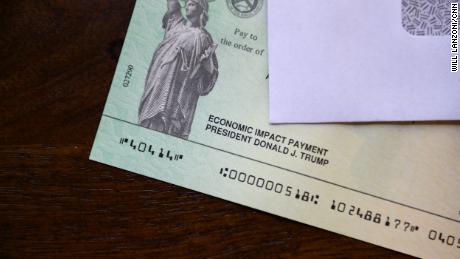Joint effort: How the Senate revised House legislation
In addition, the far-reaching legislation extends a 15% increase in food stamp benefits through September, helps low-income households cover rent, makes federal premium subsidies for Affordable Care Act policies more generous and provides $8.5 billion to rural hospitals and health care providers.
Democrats say that more government action is needed to shore up the economy, aid in the recovery and deliver relief to Americans who continue to be hurt by the pandemic.
Republicans, however, have criticized the plan as a partisan wish list of liberal agenda items that is not sufficiently targeted, and have so far put up a united front in opposition.
How the Senate revised the legislation ahead of final passage
The legislation is expected to get final approval by the House after the Senate made a series of revisions to the bill and passed it over the weekend.
The checks will phase out faster than in previous rounds, completely cutting off individuals who earn more than $80,000 a year and married couples earning more than $160,000 — regardless of how many children they have. The revisions made by the Senate will leave out about 7 million families, according to an estimate from the Penn Wharton Budget Model.
But the Senate kept the income thresholds the same for who gets the full payments: individuals earning less than $75,000 a year and married couples earning less than $150,000 will receive $1,400 per person, including children.
On unemployment benefits, the Senate changed the legislation to provide a $300 federal boost to weekly jobless payments and extend two key pandemic unemployment benefits programs through September 6. The first $10,200 worth of benefits will be tax-free for households with annual incomes of less than $150,000. That marked a significant change from the earlier-passed House bill, which would have provided a $400 weekly enhancement through August 29.
Finally, the minimum wage hike was removed by the Senate after the parliamentarian, a little known but powerful official, ruled it out of bounds under the reconciliation process that Democrats used to advance the legislation in the chamber with only a simple majority and no Republican support.
Democrats race the clock to pass relief
Democrats are racing the clock in an effort to get the legislation to the President’s desk as quickly as possible.
The House is currently debating the bill ahead of a vote on final passage, which will likely occur Wednesday afternoon.
Action on the bill was briefly stalled when Republican Rep. Marjorie Taylor Greene of Georgia called for a motion to adjourn, a move she has repeatedly used to disrupt the floor schedule and that has frustrated even members of her own party.
The vote on the motion to adjourn failed by a tally of 149 to 235 with a significant number of Republicans voting in opposition, the largest number of Republicans to vote against Greene’s motion to adjourn since the Georgia freshman started pulling the move.
Biden told reporters Monday that he will sign the relief package as soon as it lands on his desk. “As soon as I get it,” the President said when asked when he would be signing the bill.
The House vote on final approval comes after a marathon session of amendment votes in the Senate last week that featured an all-night “vote-a-rama” and a 12-hour struggle to get one Democrat to support the party’s plan on a critical issue.
Democrats kept a Senate roll call vote open for 11 hours and 50 minutes, the longest in recent history, in an effort to resolve the situation, a sign of the centrist Democrat’s power in the 50-50 Senate, where Democrats control the narrowest possible majority, and an example of how a single senator can derail the President’s agenda.
Manchin finally agreed to extend $300 weekly unemployment benefits through September 6, and the Senate passed the revised legislation on Saturday.
This story has been updated with additional developments Wednesday.
CNN’s Annie Grayer, Kristin Wilson, and Anneken Tappe contributed to this report.
![]()






